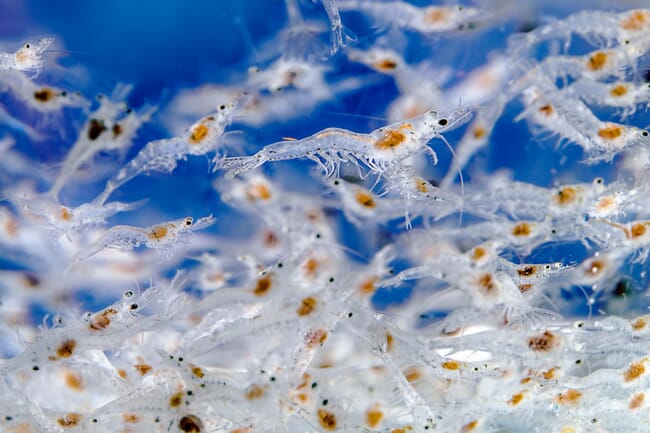
© Shutterstock
The shrimp industry is hugely important for Bangladesh’s economy, employing around 3.5 million people and providing a key source of dietary protein.
The industry has expanded rapidly over the past 40 years, but now faces increasing losses from disease – partly due to poor biosecurity, according to the researchers.
This has substantial economic, social and environmental costs.
“Our project aims to help the Bangladesh shrimp aquaculture industry become more sustainable by improving biosecurity,” said project lead Professor Charles Tyler, in a press release.
“We know from animal production in other global regions that good biosecurity helps to prevent disease and reduce the need for chemicals and drugs.
“If we can support the shrimp industry to improve biosecurity in Bangladesh, this should in turn increase productivity and lower the impacts on biodiversity loss, pollution of water systems and the risk of antimicrobial resistance.”
Hatchery management
The digital tools created by the Exeter team are for shrimp hatcheries, which produce larval shrimp and supply the entire industry of more than 300,000 farmers across Bangladesh.
They have been produced in collaboration with shrimp hatcheries and in-country partners WorldFish and the Centre for Communication Action Bangladesh.
Lead researcher, Dr Kelly Thornber, said: “Most biosecurity training materials are not aimed at low-income, extensive farming systems, which are commonly found across Bangladesh, and they are usually technical and text-based, so not very appropriate or readily accessible.
“By working with in-country partners, we have identified pragmatic solutions that are simple and relatively cheap to implement.
“We have developed a set of digital training videos, a self-assessment app and monitoring sheets, to make biosecurity training more engaging and accessible.”
This project is funded by the Biotechnology and Biological Sciences Research Council and is one of many being run from the Centre for Sustainable Aquaculture Futures (SAF), a collaboration between the University of Exeter and UK Government’s Centre for Environment, Fisheries and Aquaculture Science (Cefas).
The Centre aims to support the sustainable development of the aquaculture industry, which plays a hugely important role in global food security and the provisioning of nutritious food.
SAF scientists are working with industry partners and wider stakeholders to help improve aquatic animal health and food safety, and the protection of the aquatic environment.
Professor Tyler, SAF co-director, said: “There is no doubt that aquaculture will play an increasingly important role in future global food security, but we have to ensure this is done in greater harmony with the natural environment to minimise any environmental impact.
“In this endeavour disease control is key, and therefore projects such as this, focused on training and improving biosecurity measures, are hugely important for the long-term sustainability of the industry.”
For more information on this project and to access the digital training tools, please visit the project webpages.




